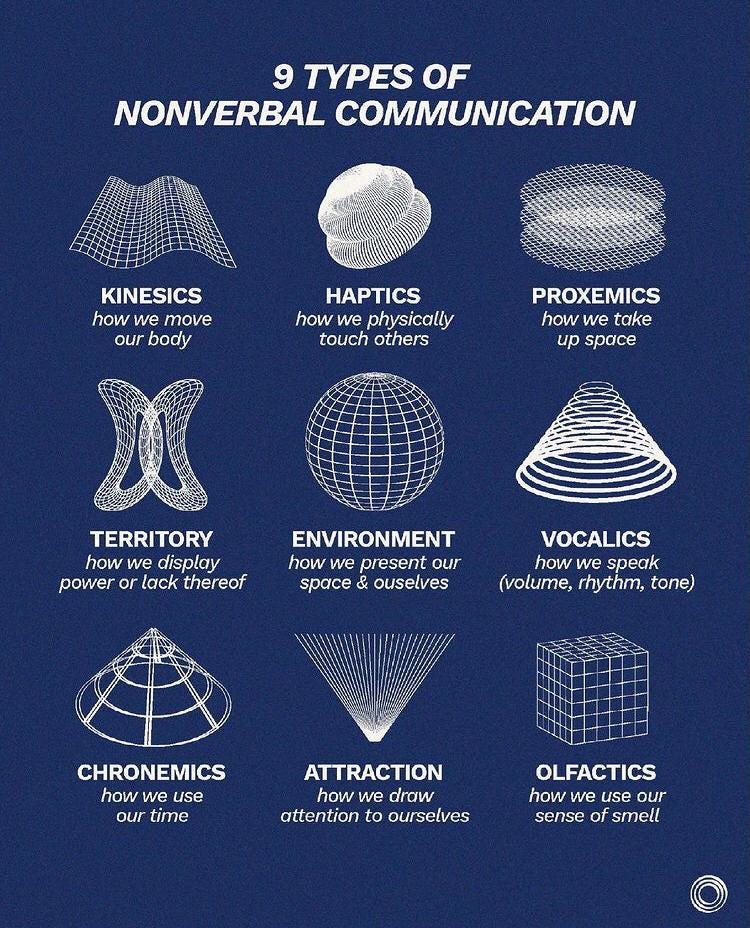👃 Have we been taking our sense of smell for granted?
Nonverbal communication is not all about body language.
Within the last couple of years, we’ve all had to learn about hyposmia and anosmia the hard way. As one of the common symptoms of COVID-19, partial (hyposmia) or complete (anosmia) loss of smell have been one to watch for as we get more and more cautious of catching the deadly virus.
But even pre-pandemic, our sense of smell has been playing a huge role in the way we perceive ourselves, build up confidence, and even manage stress and anxiety.
9 areas of nonverbal communication
Generally, the most well-known form of nonverbal communication would be body language, which falls in the area of kinesics. Some other signals are more subtle and go unnoticed most of the time. Regardless, they are as important in both personal and professional situations. Pictured below are the 9 nonverbal communication types and their most simple definitions.
In the proxemics area, personal space could define comfortability with others or even lead to criminal or delinquent behavior called “mob mentality”. Vocally, the way we communicate could deliver different messages depending on the functions: repetition, accenting, contradicting, and others.
Read more on the types of nonverbal communication and which ones you need to be using more (or less) here.
The power of olfactics cues
As the oldest-dated out of the five human senses, smell holds a lot of functions—from survival to reproduction. As we evolve and adjust to our modern needs, smell has also been present in helping us gain confidence and eliminate stress. As stated in this study on Japanese female perfume-wearers, individuals who wear perfume use less movements which improve their visual impressions.
One superpower that our sense of smell allows us to have, is the fact that it triggers memories called the odor-evoked autobiographical memories. A fun fact is that, the memories triggered by scents are usually memories formed before we turned ten years old.
Learn more on how smells could trigger ‘random’ memories from the past in this 3-minute video.
Scents as a productivity tool
The “Proust Effect”, named after scientist Marcel Proust, is a phenomenon in which smells recall particular emotions. This tactic is often used by exam-takers to memorize materials better, and made possible by the collaboration of these 3 areas of the brain, which are physically located near each other:
Olfactory system: Responsible for sense of smell by processing information received from nerve cells.
Hippocampus: Very important for dealing with memories, especially long-term memories.
Amygdala: Responsible for emotions, emotional behavior, and motivation.
Some like to put candles, essential oils, or even herbs in their work or study spaces to enhance mood and behavior. Scents like lavender are known to increase concentration, and bergamot to provide energy.
Find the different effects of scents, and studies supporting the use of smells in this article.
Can you smell it in the air? It’s the smell of Monday Mavens giving you even more interesting facts and productivity tips when you subscribe and share the Monday Mavens editions you find insightful.
Click the button below to let your friends in on the fun. We’ll see you again next week!

